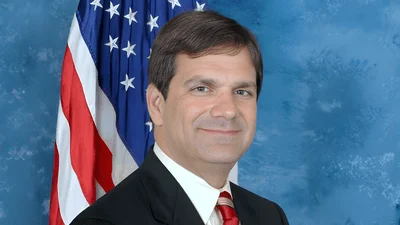Every day across America, parents, grandparents, and people of all colors and backgrounds - rural, urban, and suburban - get up in the morning and work hard to make better lives for their families. Despite their differences, these individuals encounter many of the same obstacles.
They can’t find appropriate child care, or they can’t afford it.
They need to care for a parent or a child, or deal with their own health challenges, but they can’t withstand the loss in income from taking time off work.
Or, the jobs that allow them to balance work and family pay less than the jobs available to workers who don’t have those responsibilities or health challenges.
Lack of affordable child care and paid leave are not “some of us" problems. They are “all of us" problems - challenges all Americans will face at some time in their lives - from my district on the West Side of Chicago to the ones that my colleagues represent on the East and West Coasts.
Even with recent increases, after adjusting for inflation, our federal investment in child care remains roughly the same as it was over a decade ago in 2006.
As a result, only about one in six eligible children receives federal child care assistance, leaving many parents facing impossible choices.
Less than half of Americans have access to paid medical leave.
Less than a fourth of American workers live in states where they can earn temporary disability insurance, and less than a fifth of workers can get paid leave when they need it to care for a loved one.
These barriers cause stress for all workers that encounter them. But for many of the people that I represent - people who may not start out with as many skills and advantages, people who live in poorer communities or people who are weighed down by their past mistakes or those of family members - these barriers trap them in poverty, even though they work hard every day.
I am deeply grateful that two hardworking caregivers, Mrs. Tameka Henry and Mrs. Yvette McKinnie, were willing to make the personal sacrifices necessary to travel here today and inform our work by sharing their stories.
Congress has the power to remove these barriers ‒ to level the playing field for working families. Just last week, the National Academy of Sciences released a critical report which found that we could reduce child poverty by 50 percent in just 10 years by making policy changes that would cost just a fraction of the $800 billion to $1.1 trillion that child poverty costs our nation each year. Among the evidence-based, bipartisan policies highlighted in the report were changes to child care funding and tax credits. The child care policy changes alone were estimated to reduce child poverty by 30 percent.
I am proud to cosponsor the Child Care for Working Families Act, introduced by my friend, Chairman Bobby Scott of the Education and Labor Committee, and I look forward to working with him to enact comprehensive solutions to the child care crisis that take advantage of all of the tools within the our two Committees’ jurisdictions.
When it comes to paid leave, some of our states and communities are already showing us the way and have taken action to allow workers to earn the paid leave benefits that they need to balance work and family.
My colleague Rosa DeLauro’s FAMILY Act, which I and many of my colleagues have cosponsored, would build on these successful state experiences to make earned paid leave a reality across the country. We are also fortunate to be able to call on the expertise of our colleague Mr. Gomez from California as we consider national action on paid leave.
Booker T. Washington said, “If you want to lift yourself up, lift someone else up." This Congress, I mean for our Subcommittee to realize his vision and to lift up the parents and grandparents across the country who have asked us for so little and given so much.








